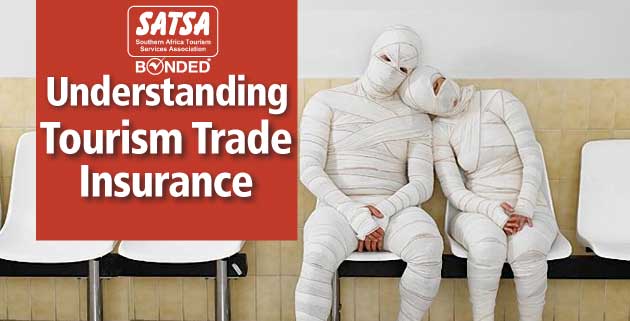How to protect your business, your staff and yourself against disaster
The Tourism and Leisure industries are constantly evolving and the biggest by-product of this is increased competition. One extremely effective practice in staying ahead of the pack is finally getting the attention it so urgently deserves. One doesn’t have to look far to see the extent to which this industry is investing when it comes to risk management.
The practice of ensuring that your establishment and staff are fully equipped and prepared to face any risk-related incident is crucial in today’s hospitality industry. But this is not as simple as it seems and more businesses’ are turning to external assistance when it comes to incident management.
A guest who gets bitten by a venomous snake in your safari camp or a patron who trips over a loose stair tile in your restaurant and breaks an arm, perhaps wouldn’t be viewed as a big incident in the vastness of society. But, for a bush camp, B&B, hotel or restaurant, one disaster suffered by one guest, can break your business. The correct reaction and follow up to this incident, however, can make or break your business.
A couple of years ago, there was a limited ability for the impact of one incident to propagate. Recently the impact of these incidents on businesses has accelerated. Now, with a very complex society and the ability for information to spread “virally” via media and social network platforms, the impact of these incidents is considerable.
Experts in the industry are saying incident planning and handling are fast becoming all that matters when it comes to a differentiation between service providers and institutions.
The problem with incident management is that you can’t eradicate an incident that has already happened, and you can’t predetermine a response, especially whilst you are trying to focus on the important stuff like running your business.
There are experienced incident management companies around that are able to equip you with what you need to prepare for before an incident, coordinate your procedures and provide you with all the information you need on hand should an incident occur. In the event of an incident occurring, these teams are on call 24-hours a day for guidance on how to deal with the situation as it happens.
They also coordinate any external services such as ambulances and helicopters. These incident management teams are often medical doctors themselves, or are in constant communication with doctors, ensuring that all is done correctly so as to avoid leaving your business open to a court case.
A few things to bear in mind when considering your risk management
strategy:
- Expect incidents, don’t try to prevent them.
- Prepare, don’t react.
- Measure capacity to respond, not incident probability.
- Manage according to principles, not protocols.
- Don’t use checklists, use resources.
- Treat each risk event as unique.
- Be abstract before an incident, and specifically during one.
After an incident has occurred, and should a client or patron have become the victim of one whilst at your establishment, the possibility of them suing is high.
People sue because they have suffered a loss. Keeping this loss as small as possible decreases the potential for a claim and limits its size. In order to plot the lowest risk path through tricky situations consider the following advice:
1. Get the right insurer
You ‘co-defend’ with your financial services provider – or you should – first make sure you have adequate and appropriate cover. Make sure you have a specialist who intimately understands the vagaries of the host-guest relationship, and who provides a high level of support during and after an incident. It is worth spending a little bit more on premiums to get the right attitude and approach from your financial partner.
2. Create the right culture
Value a proactive approach to risk containment and pass this on to staff. How? Talk about it, encourage reporting, review incidents constructively, invest in staff, train them in the Incident Command System and related
skills, create better than average emergency response plans and get expert consultants to guide you in this. Prepare well, be a team, run practice sessions and have everyone know their roles. Show them you value this and they will too.
3. Offload to professionals
Make sure you or your insurer make financial and logistical provision to get specialists on the case as soon as it occurs – transfer decision making and attendant liability as soon as is possible.
4. Manage people, not just incidents
Remember that people sue, not injuries. This is more than buying dinner afterwards and avoiding admitting guilt. Here are a few considerations:
- Contain staff emotions;
- Take charge calmly;
- Work well as a team;
- Interact with guests face to face;
- Maintain a high presence in the first 24 hours;
- Follow up correctly;
- Communicate skillfully and via correct channels;
- Be careful with the media;
- Know the character types that raise red flags, and;
- Always be the consummate professional.
For more information contact SATIB on 0861SATIB4U or e-mail: [email protected] or visit: http://www.satib.co.za




